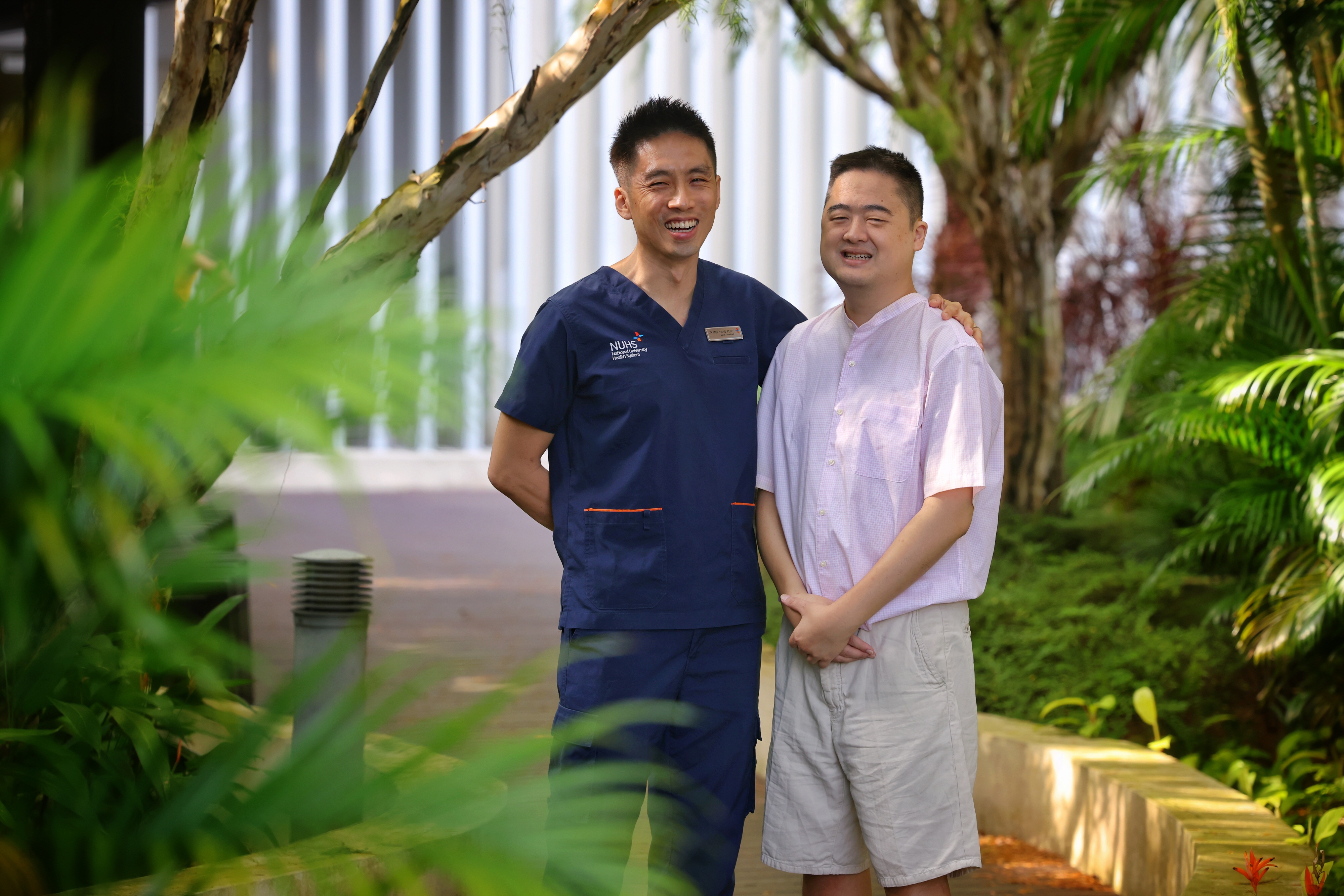NUH provides lifelong care for Mr Jeremy Cheong, who has
panhypopituitarism, a rare hormonal disorder that affects vital body
functions — and gives him an unusually youthful appearance.
Issue 8 | March 2025

 Subscribe and ensure you don't miss the next issue!
Subscribe and ensure you don't miss the next issue!
At 41, Mr Jeremy Cheong is often mistaken for someone half his age. At a school reunion in 2024, his ex-classmates bore the expected signs of ageing — wrinkles, frown lines, the usual — while he looked as though he had just stepped out of his twenties. His youthful appearance, however, is not a result of genetics but of panhypopituitarism, a rare condition that impairs hormone production in the pituitary gland.
The pituitary gland, located at the base of the brain, regulates vital functions such as metabolism, growth and reproduction. Without proper hormone production, patients experience a range of health issues from delayed puberty to chronic fatigue and metabolic imbalances. In severe cases, as with Mr Cheong, the condition can be life-threatening without medical intervention.
Managing panhypopituitarism requires lifelong medical care, involving hormone replacement therapy and routine monitoring. Mr Cheong’s care has been closely coordinated and managed by the National University Hospital (NUH), where specialists such as Dr Mok Shao Feng, Senior Consultant, Division of Endocrinology, Department of Medicine, NUH, work with patients to mitigate the long-term effects of hormonal deficiencies.
Providing lifelong care for a rare condition
Panhypopituitarism affects about four in 100,000 people worldwide every year. “Patients can be diagnosed with varying symptoms and at different stages of their life,” says Dr Mok. “Individuals who have young onset of the disease can have delayed puberty, missing pubertal milestones. For female patients, they can present with missed or irregular periods, subfertility and difficulty in conceiving. When it comes down to the other hormones, the general symptoms include feeling more tired and putting on weight.”
For some, symptoms develop gradually and may go unnoticed for years. But for others like Mr Cheong, the effects were more pronounced. At 21, he began experiencing unexpected weight gain . Concerned about his health, he sought medical advice, which led to a blood test confirming hypothyroidism, a sign of broader hormonal dysfunction. Further scans revealed the root cause — a tumour near his hypothalamus.
“The most common cause of panhypopituitarism is tumours in the pituitary gland or hypothalamus. While these are usually benign lesions, they are growing in an enclosed space and can cause compression, affecting hormone production,” explains Dr Mok. In some cases, they may also lead to vision loss or sudden bleeding. To prevent further complications, Mr Cheong underwent surgery to remove both the tumour and part of his hypothalamus, after which he required hormone replacement therapy.
“Hormone replacement therapy is critical, but the complexity depends on how many hormonal axes are affected,” adds Dr Mok. “For Mr Cheong, multiple hormones had to be supplemented, including cortisol, which regulates blood pressure, blood sugar and immune function. Without steroid treatment, his condition could have been life-threatening. The lack of testosterone also reduces the activity of oil glands and hair follicles, and can alter one’s appearance. This will however bring on other health issues such as fatigue, reduced muscle endurance as well as poor bone health and osteoporosis. Testosterone replacement is hence required to prevent these problems.”




















